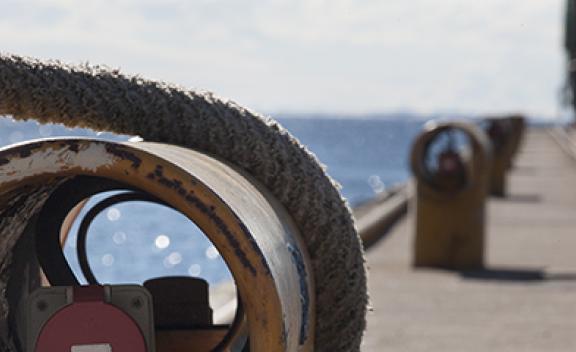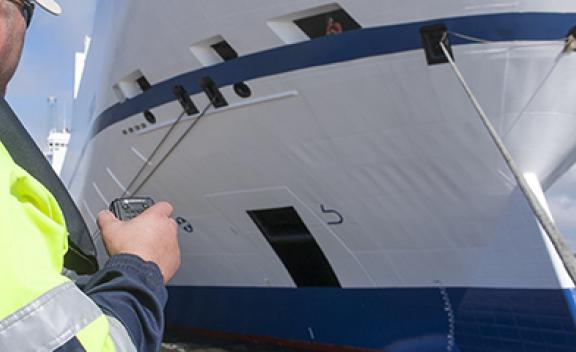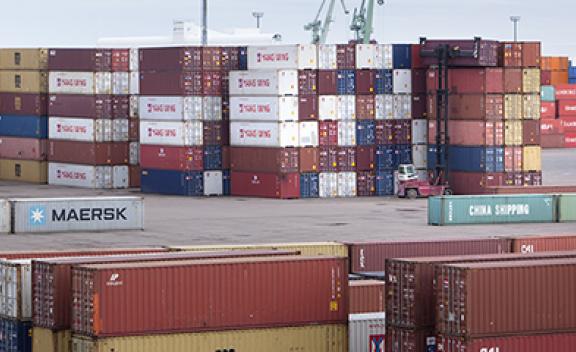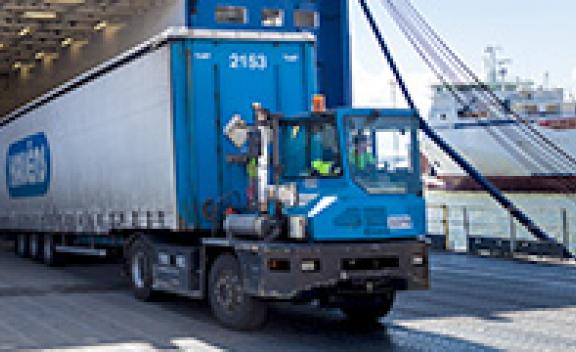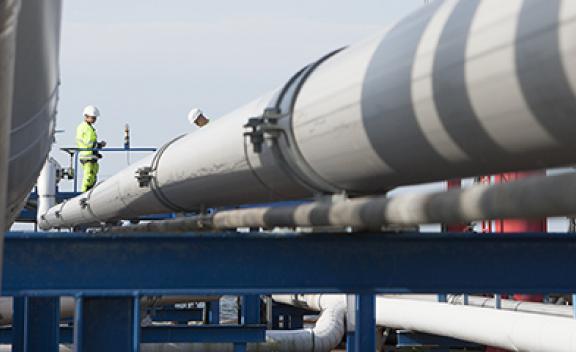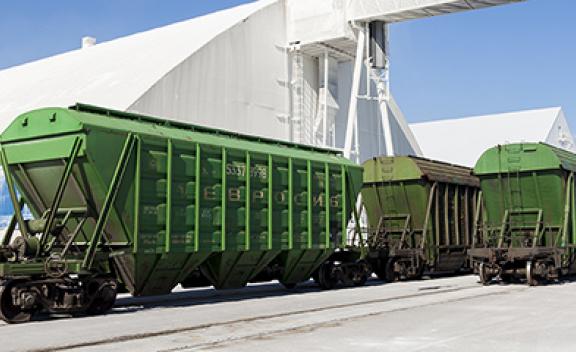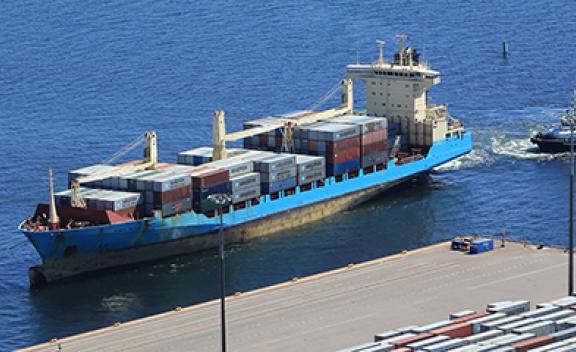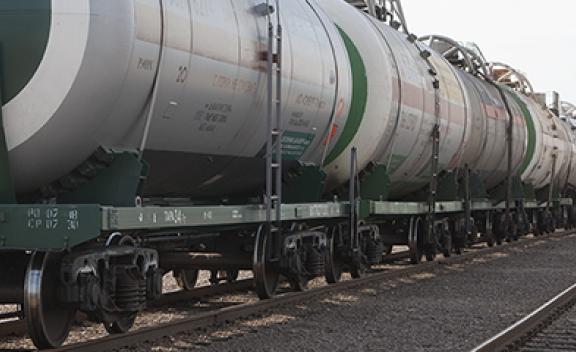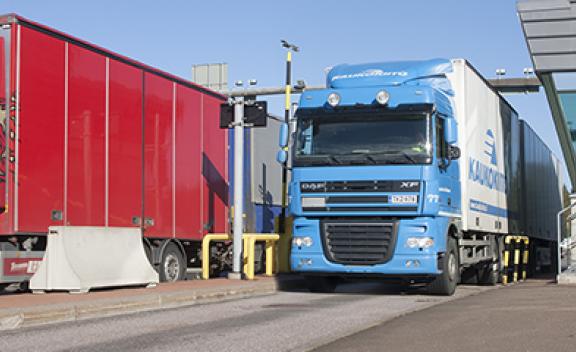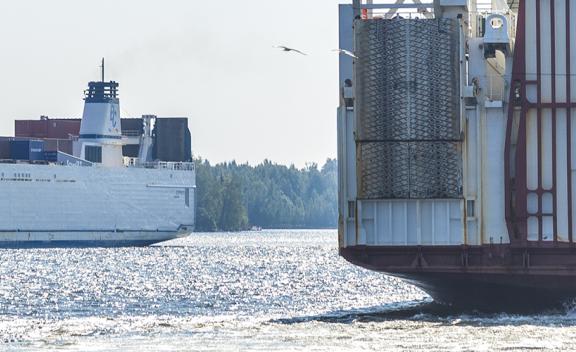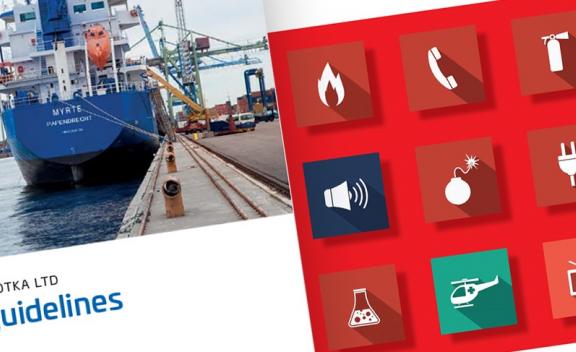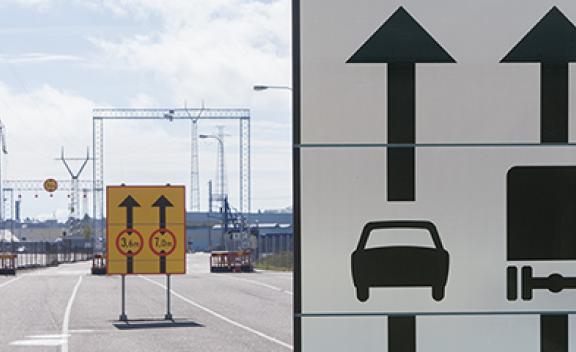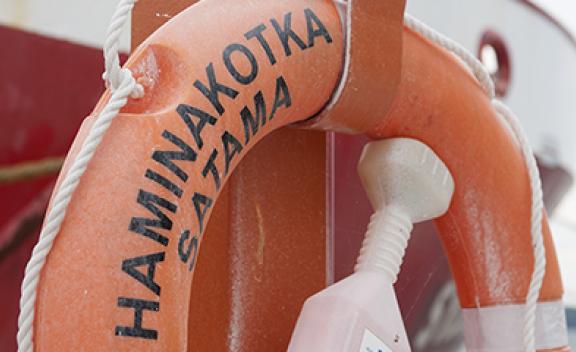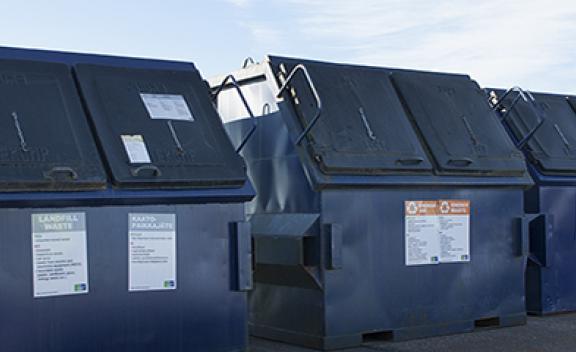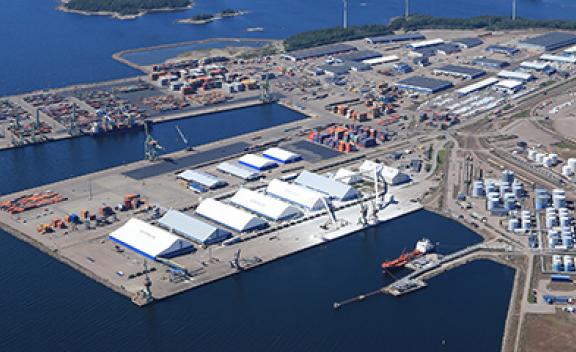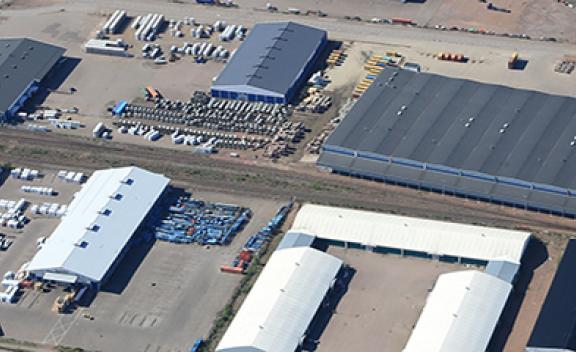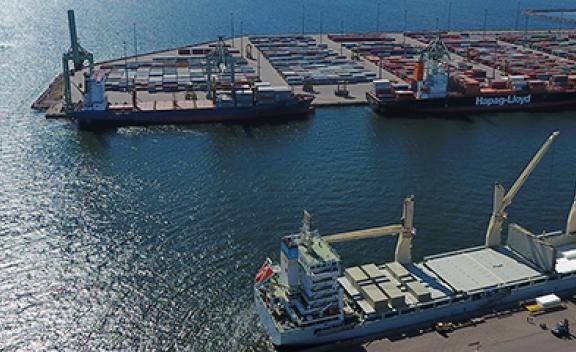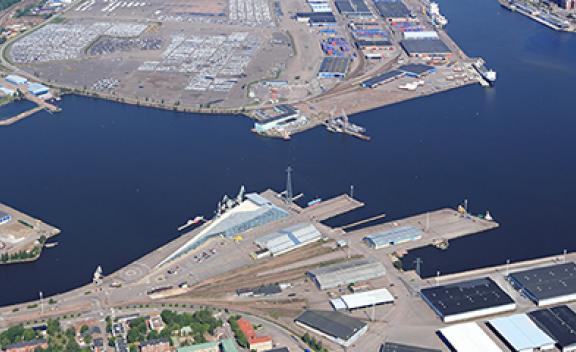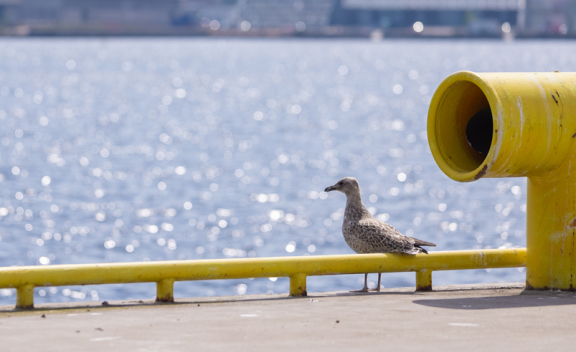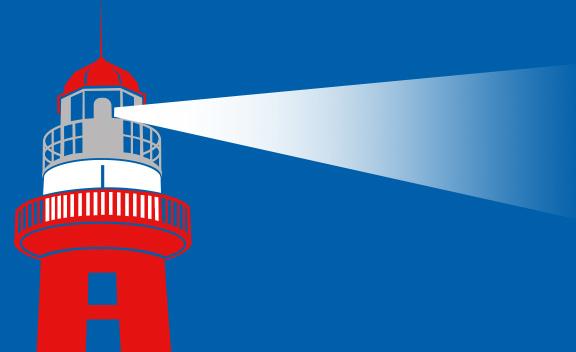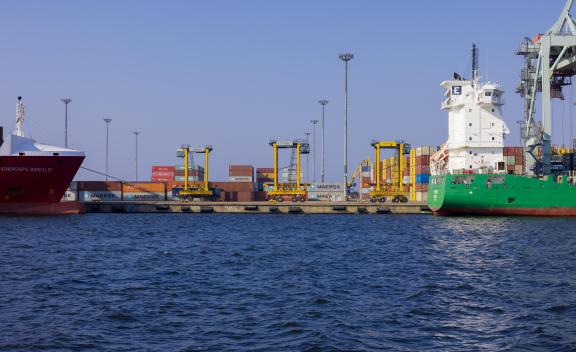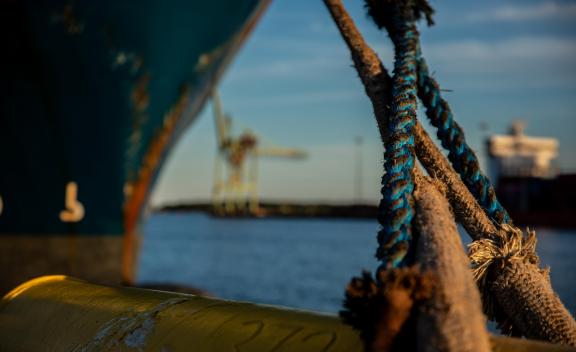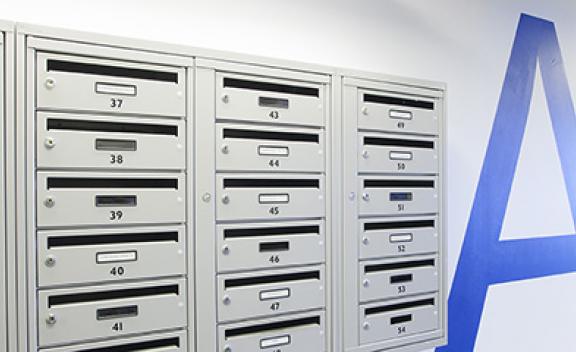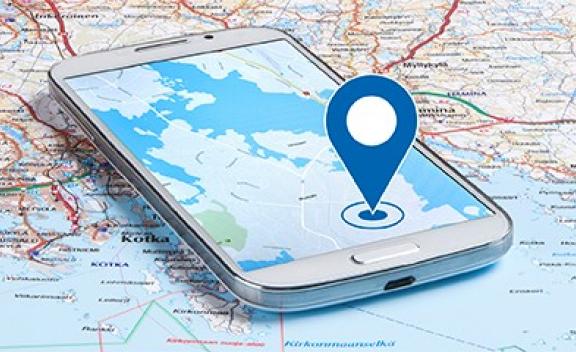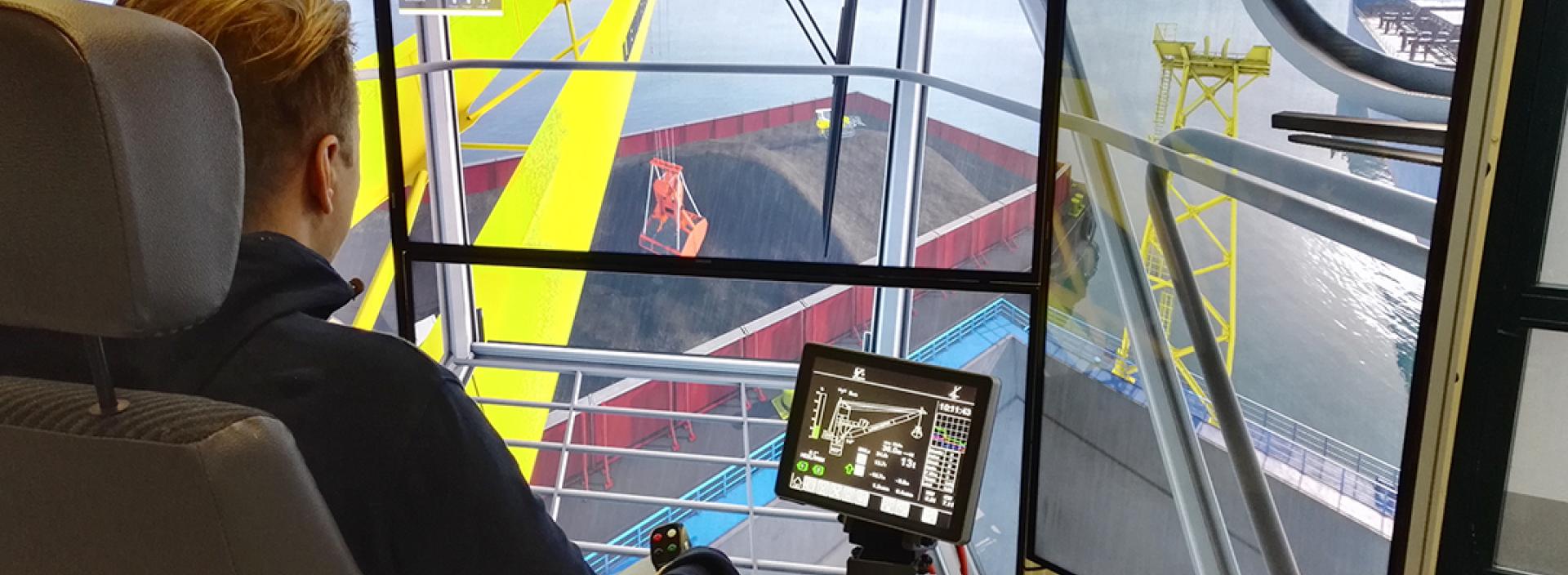
New simulators are used for practising crane work in conditions corresponding to those at the port.
Port operators want to employ top-level multi-skilled persons.
Simo Knutas, who works at Etelä-Kymenlaakso Vocational College (Ekami) as the teacher in charge of training in the port sector, browses through his full calendar and assures that Ekami can arrange crane training tailored to the needs of businesses even at a short notice.
According to him, the dynamic response ability is based on ready-made online training and contact training modules that are used for building a package that complements the expertise and work-related skills of each learner.
“Time is no longer spent in the classroom to study theory, but everyone studies the topics on their own online and also takes the exams online. During a contact training period of a few days, we focus fully on training with simulators that simulate the realistic circumstances.”
Large-scale investment received EU support
Simo Knutas is especially satisfied with the latest cutting-edge crane simulators. As far as he knows, no other training organisation in Finland has similar simulators, and elsewhere in the world they are mainly used only by individual ports.
“We use two new simulators to practise the operation of four different types of cranes. Thanks to Ekami’s active training exports to countries such as Estonia, Russia and Kuwait, our quality is also trusted in the European Union, and we received significant support for our investment of 500,000 euros from the funds of the EU,” Simo Knutas says.
Demand growing rapidly
Simo Knutas thinks that the good demand for port crane training is an indication of the good buzz of the economy on one hand and of the lack of expertise in companies on the other hand. As the transport volumes at ports are growing, operators make investments in new equipment for which the employees need training.
“If the growth continues at the level of the early part of the year, we will give training to 50 per cent more port operators this year than last year. We are also going to focus on the exports of training services – we can go to our client’s site with the simulator, or the trainees can travel to Finland,” Simo Knutas says.
Simo Knutas promises that the learners coming from both within and outside Finland will have access to good facilities. The accommodation and catering services are part of the campus, and airport transport can also be arranged if necessary.
New crane simulators extend Ekami’s supplementary training offering
- Ekami, Etelä-Kymenlaakso Vocational College, provides training in the use of four different types of port cranes by means of two simulators.
- Contact training typically lasts 3 to 4 days.
- The training package is built individually.
- The participants often have a few years of work experience at the port, operating other cargo handling equipment.
Crane training is part of the vocational qualification in cargo handling. The competence-based qualification tests are held at the workplace.
Photo: Ekami
